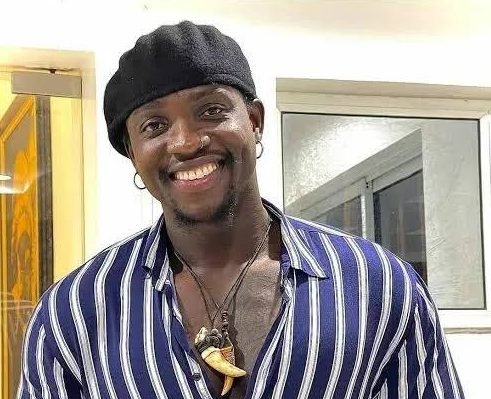EFCC Defends VDM Arrest, Dismisses Claims of Witch-Hunt
Amid the mounting backlash trailing the arrest of controversial online activist Martins Vincent Otse, popularly known as VeryDarkMan (VDM), the Economic and Financial Crimes Commission (EFCC) has stood firmly by its actions, insisting that the agency acted strictly within the bounds of the law. Responding to the public outcry and accusations of political victimization, the EFCC has continued to assert that the arrest was based on legitimate legal grounds and credible petitions, not on social media sentiments or retaliatory motives.
A Storm of Criticism
The arrest of VDM triggered a flurry of reactions from the public, rights groups, legal professionals, and social media users who accused the anti-graft agency of targeting him for his vocal criticism of the Nigerian system and security agencies. Given his massive following and reputation for blunt, no-holds-barred commentary on national issues, many of his supporters interpreted the arrest as an attempt to silence a fearless voice.
Protests erupted in Abuja shortly after news of his detention broke, with crowds storming the GTB headquarters—allegedly linked to one of the financial disputes involving VDM—to demand his immediate release. Influential figures, including Labour Party’s presidential candidate in the 2023 general elections, Peter Obi, as well as human rights advocates and celebrities, voiced concerns about the apparent overreach by the EFCC and the erosion of civil liberties.
EFCC Sets the Record Straight
Despite the furore, the EFCC has remained unshaken. In an official statement delivered by its Head of Media and Publicity, Dele Oyewale, the commission firmly denied claims that VDM’s arrest was connected to his social media persona or the caustic remarks he often makes against institutions of the state. Oyewale clarified that the Commission’s decision to arrest the activist stemmed from a series of verified petitions that leveled serious allegations of financial misconduct against him.
According to the EFCC, VDM had consistently ignored multiple invitations for questioning sent to his known addresses and communication channels. As a result, the commission said it had no choice but to proceed with his arrest. “This is not about what he says online or who he offends with his statements,” Oyewale said. “The EFCC is not in the business of silencing critics. Our mandate is to investigate financial crimes, and the allegations against Mr. Otse were grave enough to warrant an official investigation.”
To back its stance, the agency revealed that a valid remand order had been secured through the appropriate legal channels, authorizing them to detain VDM pending the outcome of their inquiries and the fulfillment of administrative bail conditions. Oyewale emphasized that VDM’s continued stay in EFCC custody at the time was not punitive but procedural, as he had yet to meet the stipulated terms for his release.
One of the most contentious aspects of the VDM case lies in public perception. For many, the timing and manner of his arrest appeared suspicious, given his history of social media activism and high-profile call-outs of powerful figures. However, the EFCC has repeatedly urged Nigerians not to view the matter through the narrow lens of digital influence or emotional allegiance.
“The Commission appreciates the interest of Nigerians in its operations,” Oyewale stated. “However, insinuations about our motives are not only misplaced but also harmful to the rule of law. We urge the public to allow law enforcement agencies to perform their constitutional duties without fear or favor.”
This plea, however, has done little to quell the concerns of observers who feel that Nigeria’s law enforcement agencies often lack consistency in how they apply the law, especially when dealing with individuals who challenge the status quo.
A Question of Trust
The EFCC’s insistence that due process was followed has reopened an ongoing national conversation about trust in Nigeria’s institutions. Many Nigerians believe the law is applied unevenly—hitting the outspoken or powerless with full force, while the well-connected enjoy impunity. While the EFCC maintains that its actions were impartial and dictated by the evidence before it, the public’s skepticism reflects a deeper disillusionment with governance and justice.
The VDM saga has inadvertently thrust the EFCC into the spotlight, not merely as an anti-corruption agency but as a symbol of institutional accountability—or lack thereof. If the Commission hopes to retain its credibility, it must ensure that its investigations are transparent, its actions proportionate, and its handling of suspects respectful of legal rights, regardless of public opinion or social standing.
As it stands, the EFCC has reaffirmed that once VDM satisfies all the conditions tied to his administrative bail, he will be released to continue his legal journey from outside detention. But the implications of this case will linger, raising questions not just about VDM’s guilt or innocence, but about the balance between justice, power, and freedom in Nigeria’s democratic space.

